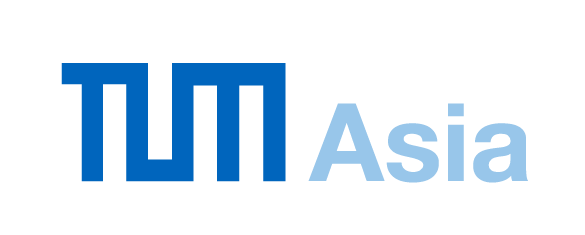KEY TOPICS
- Traffic Control Systems & Intelligent Transportation Systems
- Public Transport Concepts and Planning
- Goods Transport and Logistics
- How can smart transportation help achieve carbon neutrality and carbon reduction
MODULES OVERVIEW
Transportation Systems Analysis
This module will provide methodological components related to the analysis of transportation systems, with an emphasis on emerging data and applications. Extensions to traditional transportation systems analysis tools will be demonstrated, showing how emerging transport modes can be effectively modelled. Both data driven and theory based models will be presented, demonstrating how both approaches can be used in parallel.
Lecturers: Dr. Ramandeep Singh, Technical University of Munich, Chair of Transportation Systems Engineering
Travel Behavior Analysis and Transport Modeling
This module provides an introduction into travel behavior analyses. Theoretical foundations of travel behavior are discussed and simple econometric estimation of travel behavior models are presented. An introduction for travel demand modeling is provided, including traditional four-step models, activity-based models, freight models and integrated land use/transport models.
Lecturers: Prof. Dr. Rolf Moeckel, Technical University of Munich, Professor for Modeling Spatial Mobility
Rail Traffic Planning
This module provides an introduction to rail traffic planning. At the beginning, the interplay between railway signalling and train operations and its impact on rail traffic planning is discussed. Building on that, an overview of concepts and methods for timetabling (robustness metrics, periodic event scheduling) is provided. The course concludes with a discussion of railway performance modelling and capacity planning.
Lecturers: Prof. Dr. Norman Weik, Technical University of Munich, Professor for Design and Operation of Public Rail Transport Systems
Public Transport Concepts and Planning
This module will give an introduction into the planning principles of public transport systems. The characteristics of different public transport means (Bus, LRT, MRT. etc.) will be discussed. The characteristics of different line network concepts will be introduced. Public transport prioritisation and the integration of different transport means into one system are other topics in this module.
Lecturers: Dr. Andreas Rau, Technical University of Munich Asia, Faculty Head and Principal Investigator (Rail, Transport & Logistics)
From Real-World Problems to Solutions: The Power of Linear Programming
Dive into the world of linear programming and discover how to transform complex real-world challenges into mathematical models. You will gain the skills to tackle diverse industry problems and create effective solutions through the art of mathematical formulation. Introduction to Logistics Material Flow Optimization.
Lecturers: Dr. Fabian Schäfer Technical University of Munich, Chair of Supply and Value Chain Management
Public Transport Policies
This module aims to introduce the basic principles of public transport policies to create transport system where people can rely on a fast and passenger friendly public transport system. The theoretical policies will be supported by showing some case studies in Chinese cities, where these concepts are applied in a real city.
Lecturers: Prof. Dr. Yang Xinmiao, Tsinghua University
Transport Planning Theory and Its Development
This course is to introduce the basic principles of transport planning, planning methods, the working process of transport planning, and the application of transport planning theory in various transport planning and the latest research progress. The main contents include the characteristics of traffic demand and the main influencing factors, the content and main processes of urban traffic planning, the classical methods of urban traffic demand forecasting, and the outlook of traffic planning and management theory research.
Lecturers: Prof. Dr. Huapu Lu, Tsinghua University
Traffic Condition Estimation and Control
Nowadays, with the development of data collection, analysis and application technology, various kinds of abundant data bring new opportunities for urban road traffic state estimation and control. Based on multi-source data collection, this module introduces some research achievements of the lecturer in the field of multi-level traffic state estimation and control in recent years from the perspectives of macro-traffic state analysis, estimation, micro-traffic parameter estimation and feedback closed-loop traffic control.
Lecturers: Prof. Dr. Ruimin Li Tsinghua University
How can smart transportation help achieve carbon neutrality and carbon reduction
On September 20, 2023, the Ministry of Transport publicly released the “Opinions on Promoting the Digital Transformation of Highways and Accelerating the Development of Smart Highway Construction”. Digitalization is an important part of China’s development of digital economy and the creation of new productivity, and it is also the foundation of smart transportation construction. The digital economy refers to an economic form in which human beings use big data (digitized knowledge and information) to achieve rapid optimization and regeneration of resources and achieve high-quality economic development. The current situation of carbon emissions in China’s transportation industry is not optimistic, and it is urgent to achieve dual carbon in the transportation field. Dual carbon, short for carbon peak and carbon neutrality. This course will provide a detailed explanation of the path to achieving “dual carbon” in China’s transportation sector, as well as how smart transportation can help achieve “dual carbon”.
Lecturers: Prof. Dr. Shi Jing Tsinghua University


